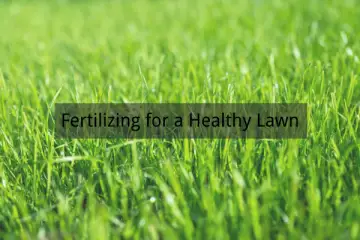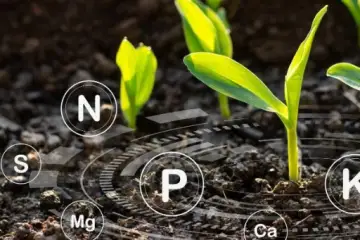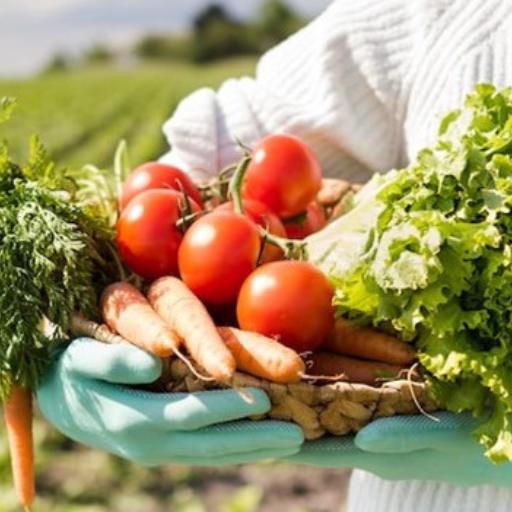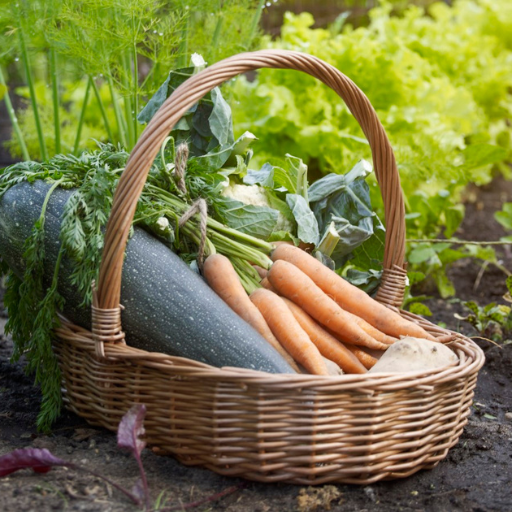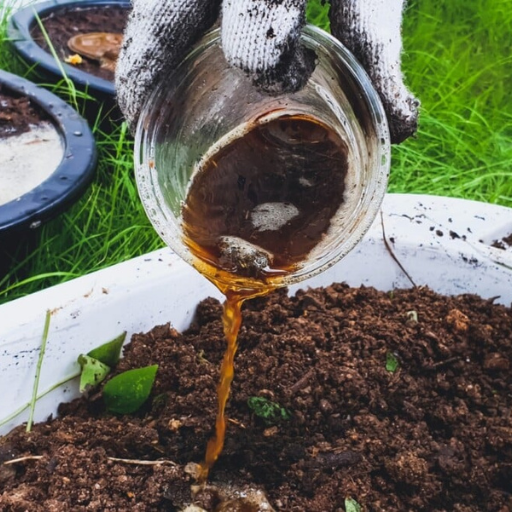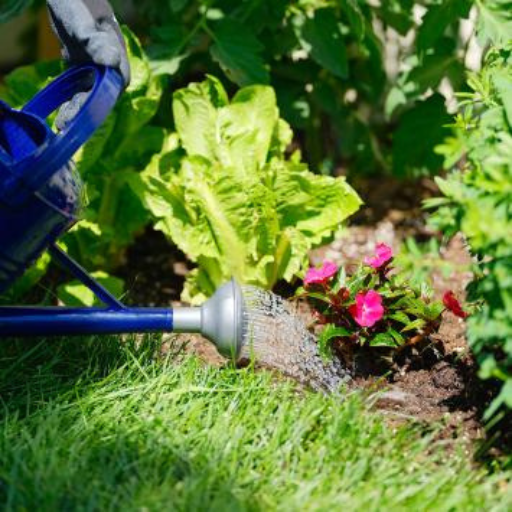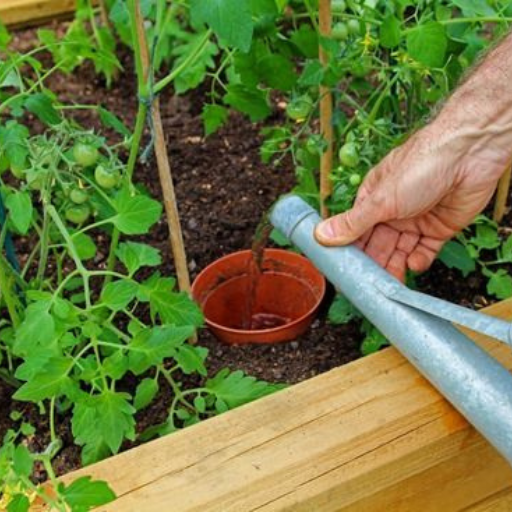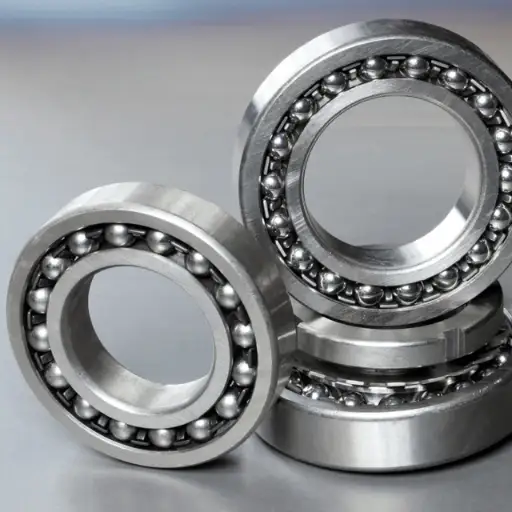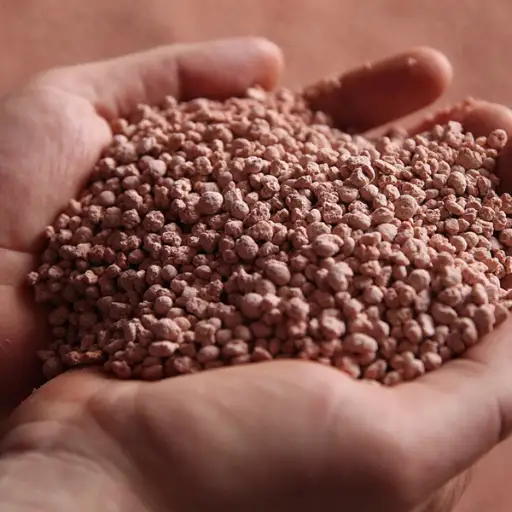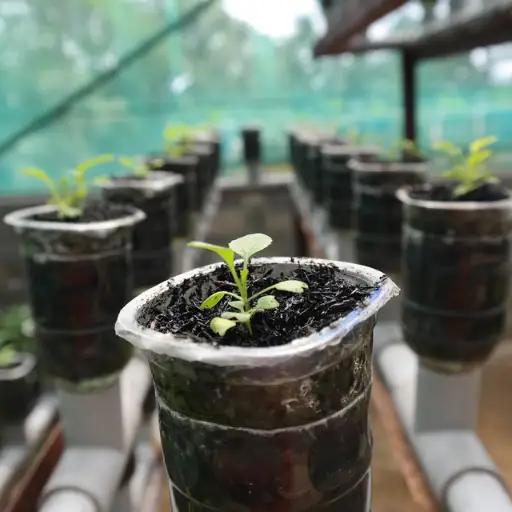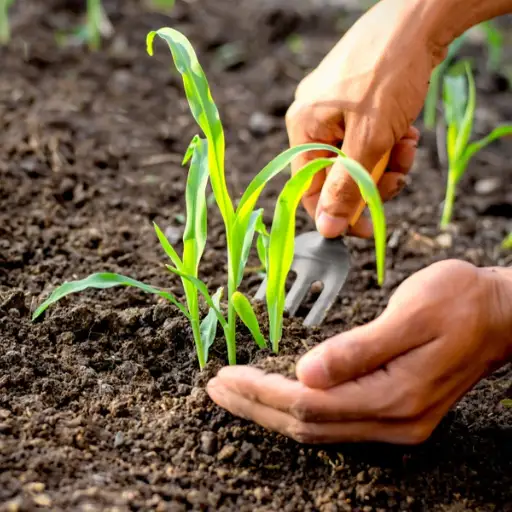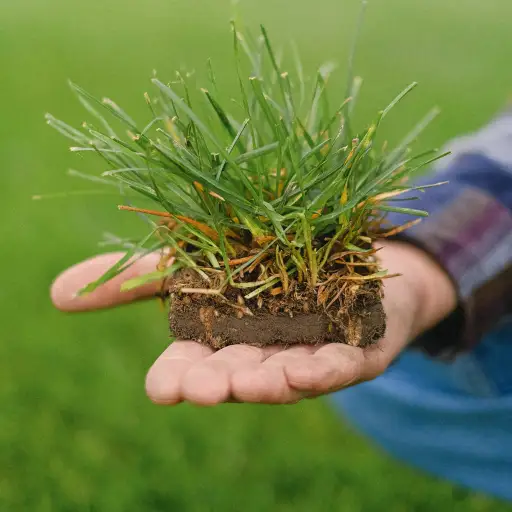In today’s gardening community, there’s a growing awareness of the importance of using sustainable and environmentally friendly practices. One of the most effective ways to ensure a healthy vegetable garden while maintaining ecological balance is through the use of organic nitrogen fertilizer. This blog aims to shed light on the benefits of organic nitrogen fertilizers, how they contribute to the robust growth of vegetables, and why they stand out as a superior choice compared to their synthetic counterparts. By delving into the myriad advantages of these natural fertilizers, we hope to provide you with valuable insights and practical tips to optimize your gardening efforts sustainably.
What is Organic Nitrogen Fertilizer and Why is it Important?
Defining Organic Nitrogen Fertilizer
Organic nitrogen fertilizer is derived from natural sources and contains nitrogen, which is a plant nutrient. Such materials include animal manures, composts, green manures, or any other organic matter. Unlike synthetic fertilizers that are chemically made, organic nitrogen fertilizers release nutrients slowly through decomposition thereby improving soil structure, enhancing microbial activities and preserving the soil fertility for a long-term purpose. They are the secret behind healthy and strong development of vegetables as well as sustainable gardening practices.
Importance of Nitrogen for Plant Growth
Nitrogen is an essential part of chlorophyll that plants have chlorophyll to make photosynthesis happen by converting sunlight into energy. It also plays a role in amino acids which produce proteins that help in cell growth and development. Plants experience retarded growth with yellowing of leaves leading to low yields if they lack enough nitrogen supply. This nutrient improves leaf development and general foliage form helping plants synthesize enough carbohydrates required for their reproduction and expansion stages. Efficient use of nitrogen is important to maintaining healthy plants and achieving optimal vegetable production.
Benefits of Using Organic Fertilizer Over Synthetic Fertilizer
There are several advantages offered by using organic fertilizers instead of synthetic ones especially on environmental impact, soil health and long term sustainability.
- Environmental Impact: Organic fertilizers are derived from natural sources hence biodegradable hence reducing risks such as water pollution through run off or leaching. On the other hand synthetic fertilizers can lead to nutrient pollution in water bodies leading to algal blooms or dead zones in water bodies.
- Soil Health: Soil structure can be improved through the addition of organic material found in organic fertilizers which increases moisture retention capacity as well as nutrient content in the soil thus promoting a healthier microbial ecosystem that ensures high fertility levels within the soils as well .Soils rich with organic matter erode less easily than those without it do not compact easily either.
- Slow Nutrient Release: Organic fertilizers release nutrients slowly thus corresponding with the way plants apply them naturally. This eliminates risks of nutrient burn and ensures a continuous supply of nitrogen as plants grow. Alternatively, synthetic fertilizers provide high levels of nutrients that are short-lasting resulting in excess running off or leaching out.
- Microbial Activity: Microbial activity is boosted by use of organic fertilizer that leads to better soil fertility. Useful microorganisms break down organic matter thereby releasing plant-absorbable nutrients. Unlike synthetic fertilizers that do not add anything to microbial activity and at times even kill useful soil organisms.
- Sustainability: Organic fertilizers help support sustainable gardening practices through the recycling of waste products like animal manure and composting. It minimizes the use of non-renewable resources for making synthetic fertilizers hence reducing the amount of carbon dioxide emitted during their manufacture.
Technical Parameters
- Nutrient Content: The N-P-K (nitrogen, phosphorous, potassium) ratio in organic fertilizers is usually lower than that in synthetic ones for example 3-2-3 versus 20-10-10 but they contain more secondary and micro-nutrients necessary for plant health.
- pH Levels: Organic fertilizers buffer soil pH more effectively leading to optimal growing conditions for different crops whereas synthetic ones can sometimes acidify it hampering pH balance as well.
- Carbon-to-nitrogen ratio (C:N): Most organic fertilizers usually have a balanced carbon and nitrogen content which supports the activity of microorganisms and facilitates the break-down of organic matter. Conversely, synthetic fertilizers are mostly aimed at supplying nitrogen to the plants without considering carbon requirements of soil microbes.
In this way, gardeners will enable their crops grow better and environment become sustainable thus positioning organic manures as better for future agricultural success.
How to Choose the Best Organic Nitrogen Fertilizer?
Understand Different Nitrogen Sources
To find the best organic nitrogen fertilizers, it is important to know the various sources and their particular advantages:
- Compost: Composting involves decaying organic materials like food scraps, yard waste or manure that make a good source of organic nitrogen. It will enrich soil with vital nutrients and helpful microorganisms that enhance its structure, water retention and aeration.
- Manure: Animal waste from cows, chickens, horses among others is rich in nitrogen and other essential nutrients. Composted manure is better choice since it kills any possible diseases; reduces smell of manure while making nutrients available to plants faster.
- Alfalfa Meal: Alfalfa meal is an example of natural fertilizer derived from alfalfa plants which contain balanced amounts of nitrogen, phosphorous and potassium. This also contains triacontanol which is natural growth hormone enhancing plant growth.
Through understanding these sources, gardeners can choose the most appropriate organic fertilizer for their particular needs based on healthy and productive crops.
Comparison between Blood Meal, Feather Meal and Fish Meal
In comparing blood meal, feather meal, or fish meal as sources of organic nitrogen however one need to consider nutrient content, benefits and possible drawbacks:
Blood Meal:
- Nutrient Content: It has a high amount of nitrogen with 12-15% by weight.
- Benefits: It provides quick release nitrogens that speed up plant development or can be used as pest control means for some animals such as deer.
- Drawbacks: If applied excessively blood meal can destroy plants or attract carnivores such as lions if not properly controlled as they would be attracted by its smell.
Feather Meal:
- Nutrient Content: Feather meal has around 12% N but releases more slowly than blood-meal over time.
- Benefits: With slow-nitrogen-release rate throughout growing season feather-meal contributes positively towards long-term soil health improvement.
- Drawbacks: Its decomposition into accessible form may take a longer time thereby not being ideal for fast growing crops.
Fish Meal:
- Nutrient Content: Fish meal provides a balanced supply of nutrients, containing approximately 10% nitrogen, as well as significant amounts of phosphorous and potassium.
- Benefits: It enriches soil with micro-nutrients and beneficial soil bacteria apart from nitrogen that enhances the growth of plants generally.
- Drawbacks: Fish meal has an unpleasant smell which may attract pests. Also it should be used with caution to prevent water contamination.
By comparing these factors one can choose the right organic fertilizer that best suits their gardening goals and soil requirements in terms of nitrogen sources.
What to Look for in Good Organic Fertilizer
When choosing high-quality organic fertilizers consider these things:
- The Right Nutrient Mix: Choose products that offer good balance of essential elements such as nitrogen, phosphorus and potassium (N-P-K) suitable for your particular plants needs.
- Source of Ingredients: You are supposed to go for fertilizers made from natural sustainable resources. Bone meal, compost or seaweed among others are preferable because they provide wide range of essential nutrients while maintaining healthy soils.
- Release Rate: Pick a fertilizer whose release is appropriate to your garden’s requirements. Some organic fertilizers will give you quick results but others provide slow steady nourishments over time.
- Soil Health: A good organic fertilizer ought to improve soil health by enhancing its structure and encouraging beneficial microbial activity within the soil.
- Certifications: For certifications, look for OMRI (Organic Materials Review Institute) listing which guarantees that the product is organic.
- Environmental Impact: Assess the environmental impact of a specific fertilizer. Choose items with least damage to surrounding ebbs and water bodies.
By taking these factors into consideration, gardeners will be assured of using good organic fertilizers that are beneficial to their plants as well as conserving the environment.
Application Techniques: How to Fertilize Your Vegetable Garden Efficiently
Effective Nitrogen Fertilizer Application Methods
- Soil Testing: It is important to carry out soil testing before applying nitrogen fertilizer so as to ascertain the level of nutrients already available. This helps in putting the right amount of nitrogen required for optimum plant growth.
- Choosing the Right Type: Selecting the right type of nitrogen fertilizer for your garden. Some options include organic sources such as composted manure and blood meal, while others are synthetic like ammonium nitrate and urea.
- Timing: Apply your nitrogen fertilizer at the proper time. For many vegetable gardens, it means early in the growing season when plants are just starting to grow vigorously and then again during peak growing periods. Avoid applying just before a heavy rain because runoff would occur.
- Method of Application: There are various methods including side-dressing where you apply fertilizers alongside rows of plants or incorporating it into the soil prior to planting. Broadcasting should be avoided in order not to waste nitrogen fertilizers which may have harmful effects on environment.
- Moderation: Do not overapply excess amounts of nitrogen since this can cause leafy vegetation at the expense of fruiting crops and may also move into water supplies thus affecting environment.
- Record Keeping: Have comprehensive records detailing every application pertaining to fertilizers; these should show quantities used, types and timing among other things. This practice ensures future applications are done better with no nutrient overloaderships.
Avoid Burn Plants and Over-Fertilization
To prevent plant burn and over-fertilization:
- Start with a Soil Test:Just like when applying only nitrogen based fertilizer, begin by undertaking a soil test that reveals the present levels of nutrients so that there is no introduction of extra nutrients that might affect plants negatively.
- Use The Correct Amount:Always follow recommended application rates provided by the manufacturer. Over-application is a common cause of plant burn.
- Gradual Application:Fertilizer should be applied gradually rather than all at once. They can lead to plant burn when applied in excess.
- Water Thoroughly:Before and after fertilizer application, ensure your plants are well watered. This way, the fertilizer gets diluted and stops buildup of salts that can scorch roots of plants as well as leaves.
- Do Not Fertilize In Extreme Heat:Over-fertilization effects may be intensified by high temperatures. It is therefore advisable to apply fertilizers when it is cooler; preferably in the morning or evening.
By following these measures, one is able to maintain a healthy garden while preventing risks associated with over-fertilization.
Using Liquid Fertilizer for Quick Results
Liquid fertilizers come in handy when there is need for fast uptake of nutrients by plants resulting in rapid growth and development. The following are some critical tips and advantages supported by leading recommendations:
- Fast Absorption: Liquid fertilizers can be absorbed faster by plants through their roots or foliage which means nutrients are made available almost immediately. This is particularly helpful where deficiency symptoms appear on crops.
- Ease of Application: They can be easily applied e.g., using a watering can, hose-end sprayer or irrigation system among others. Thus, evenly spreading the nutrients across your entire garden becomes very easy.
- Customizable Solutions: Many liquid fertilizers provide room for mixing particular nutrients according to each type of plant’s requirements. As such, they will get all necessary elements from these liquid formulas.
- Reduced Risk of Over-Fertilization: Liquid fertilizers can be applied more frequently and at lower concentrations compared with granular ones thereby minimizing chances of over-fertilizing or burning plants.
- Remedied Soil Health: Certain liquid fertilizers have helpful microbes and organic matter which makes soil health better over time to sustain a quicker growing environment.
Liquid fertilizers inserted into your gardening routine result in fast outcomes for healthier plants. However, follow the instructions provided by the manufacturer to ensure they are effective enough as well as maintain plant health.
Organic Nitrogen Fertilizer in Different Growth Stages
Needs of the Seedling Stage
Nitrogen is an essential nutrient for plants at their early stage of life. It encourages rapid growth and develop- ment of green leaves. Nitrogen is the most important nutrient during seedling development, according to several gardening websites. The right type of organic nitrogen fertilizer should be used on seedlings. Fish emulsion, compost tea and worm castings are very good natural sources of nitrogen because they provide a mild quick release form that can be absorbed easily. Those who prefer applying nitrogen in forms that will not burn their seedlings find these fertilizers to be quite appropriate. Therefore, it is suggested that before you apply fish emulsion or other organic nitrogen fertilizers on your seedlings, dilute them with water so as to prevent any kind of burn from occurring on the tender sprouts which may lead to stunted growth.
Weaknesses in plants can lead to poor yield; thus, seedlings should be checked regularly for any signs of deficiencies and if needed periodic modifications made by feeding them and providing additional nutrients.
Fertilizer Requirements for Vegetative Stage
In this stage plants grow rapidly and require more amounts of nitrogen i.e., higher level for supporting robust stem and foliage development. At this point blood meal, feather meal and alfalfa pellets are some examples excellent low cost natural nitrogen fertilizers used in many parts worldwide.Blood meal offers an immediate source of nitrogen while feather meal releases its nutrients slowly over prolonged periods.. Other than increasing protein content within unhealthy crops, alfalfa adds other benefits such as trace elements plus hormones that stimulate vegetative growth when evenly applied into soil.Accordingly, these fertilizers should always be applied when necessary doses are followed strictly to maintain healthy growing plants grasping well required amount up early blooming time.. In addition through regular monitoring including soil testing all planting materials do get satisfied for their basic needs in quest of vegetative nature.
Developing flowers and fruits
During flowering and fruiting phases, plants require different nutrients to enhance bud formation, flower- ing and fruit set. Nitrogen is no longer the primary nutrient during these stages unlike in the previous ones; instead phosphorus and potassium become major concerns. Bat guano and bone meal are examples of high phosphorous fertilizers that are required for promoting flowering as well as fruit development among crops. Furthermore they enhance plant overall wellbeing including disease prevention and higher quality fruits.
By applying these nutrients correctly one will end up with healthy blossoms thus more yields will be obtained.. Also, it is suggested you consider using a balanced slow release fertilizer which provides food over a period of time so that to keep them alive throughout these critical periods. For instance soil tests on the other hand goes along way in supporting good growth due to its ability to tailor our manure application programs in line with what we think could be right for our cereals and vegetables at this particular stage.
Flowering And Fruit Development Stages
Bud formation, flowering, and fruit production occur during the flowering and fruit development stages. In contrast to earlier stages, nitrogen takes a back seat as attention shifts towards phosphorus and potassium. Strong flower as well as fruit development requires high amounts of phosphoric acid from bone meal or bat guano. Similarly kelp contains a lot of leafy greens but it has been fortified with concentrated forms natural mineral elements which nourish the entire plant system.
This ensures that healthful blooms take place while maximum crop output is realized.. Additionally, if you add some balanced slow release manure to feed your plants throughout those important weeks such as when they have started blooming poorly then it would be very beneficial ever since they hardly die down in this way. As a result, the effectiveness of manure use is enhanced after observing crop signs and making soil amendments that lead to a bountiful harvest.
Natural and Sustainable Sources of Nitrogen for Your Garden
Composting: Changing Organic Matter into Fertilizer
Farm composting is one of the best methods to using organic matter, which will later be broken down and used as natural manure for your farm. I can obtain nutrient-dense compost by collecting leftovers such as vegetable peels, fruit rinds, eggshells among others from the kitchen and mixing them with yard wastes like grass clippings, leaves and small branches. To do this I should put these materials in layers inside a bin known as a compost bin. This process entails adding these things one on top of another in the compost bin while maintaining the right balance between green (nitrogen) matter and brown (carbon) matter; then rotating it periodically to allow air circulation as well facilitate decomposition of contents. As this organic substance decomposes, it changes into a crumbly dark material that I can apply to enhance soil structure, water retention, and supply important nutrients to my plants improving my gardening practices for food security.
Utilizing Alfalfa, Bat Guano, and Cottonseed Meal
Using alfalfa meal bat guano or cottonseed meal can greatly increase nitrogen levels in any garden thus promoting stronger faster growing plants. Alfalfa meal serves many purposes including providing nitrogen phosphorus potassium etc. Another thing about it is that it contains substances that stimulate growth hence improve root development in addition to general plant vigor. Bat guano is highly beneficial because it provides essential elements like phosphorus nitrogen etc within a very short time. It also helps in quick vegetative growth of plants which makes it very useful when applied on rapidly developing crops. On the other hand cotton seed meal takes long periods before releasing nitrogen but instead constantly gives out nutrients thereby improving soil texture over time through enhanced fertility. By incorporating these natural sources of Nitrogen into my gardening routine, I can foster a thriving and sustainable growing environment.
Benefits of Slow-release and Water-soluble Fertilizers
From my gardening experiences, both slow-release and water-soluble fertilizers have different advantages that help to keep our gardens strong and healthy. Slow release fertilizers work well in agriculture because they provide a sustained stream of nutrients over time. Therefore, there is no need to use fertilizers on the plants as much since this could be detrimental to their health due to the possibility of getting burnt or leached out by water which would pollute the sources of this liquid. On the other hand, water soluble fertilizers are great for delivering nutrients quickly. When mixed with water, they can be applied directly into the ground where they are then taken up through roots of these plants in a short period of time. They are ideal for instances when one wants to supplement certain minerals or stimulate rapid growth during key stages of development thus going for it at such a moment should never be an issue at all. By using both slow-release and water-soluble fertilizers strategically, I will ensure that my crops get adequate nutrition throughout their life cycles.
Frequently Asked Questions (FAQs)
Q: what are the benefits of a water soluble nitrogen fertilizer to plants?
A: A water-soluble nitrogen fertilizer is beneficially; it is quickly absorbed by plants, thus ensuring an immediate supply of nutrients. This kind of soluble fertilizer is especially effective for foliar feeding and rapid correction of nutrient deficiencies.
Q: Do meal fertilizers such as alfalfa meal and bone meal act as slow release fertilizers?
A: Yes, they do; meal fertilizers like alfalfa meal and bone meal function as slow release fertilizers. They slowly decay thereby providing consistent nutrient supply in the soil which facilitates healthy soil maintenance and plants’ continuous growth.
Q: Is there any possibility that high nitrogen organic fertilizer can be used through foliar application?
A: Yes; foliar application is one method that can be employed in applying high nitrogen organic fertilizers. Nutrients are usually absorbed easily when sprayed on the leaves making it possible to address specific deficiencies very effectively.
Q: What role do soil amendments such as boron play in plant growth?
A: Soil amendments such as boron are important while considering cell wall formation and development as they enhance health plant growth. While high-nitrogen fertilisers concentrate on supplying nitrogen, minute quantities of other supplies including boron help balance plant nutrition supporting overall health.
Q: How does using high nitrogen organic fertilizers compare to chemical fertilizers?
A: High-nitrogen organic manures differ from chemical ones in their provision of nutrients through more natural means with a smaller ecological foot-print at the same time. In general, organic options improve soil structure, stimulate healthy soil food web and reduce nutrient run-off compared to chemical counterparts that could be harsh on environment.
Q: Should high nitrogen organic fertilizer be used on all types of vegetables?
A: High levels of nitrogenous manure for example will benefit leafy vegetables like spinach, lettuce or kale which need a lot of this element for proper growth. On the other hand, balanced fertilizers containing phosphorus and potassium may be more suitable for root vegetables and fruit crops to meet their nutrient needs.

